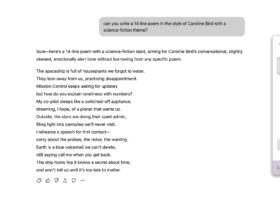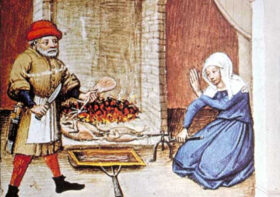Mimi Khalvati on editing and what to bin

On Saturday I dropped back in on one of the regular workshops with Mimi Khalvati run by the excellent Lewes Live Lit here in my home town. I was lucky enough to be rewarded with a place in one of these highly popular groups about 18 months ago, and although I’ve been on a break from them, when the opportunity arose to re-join I took it.
As usual I took notes, and while many things discussed were specific to the poems we workshopped, there were a couple of strong ‘aha’ moments for me, which I thought I’d share with you here.
First of all, on the subject of a poem that isn’t working but that has some ‘good bits’…
Mimi described how she had recently been working on a poem at which she had made five or six attempts – not edits, but actual start-again different approaches. In the end, all she kept was one line. And the rest? Kept for a rainy poetry day when she might use them in another poem? Still lingering in her notebook under ‘good metaphors or phrases I could use somewhere’? No – it all went in the bin.
Her point was that when something isn’t quite working, poets are often quick to say “maybe I can put that great line into another poem” when in fact it’s worth asking the question “maybe I can put it all in the bin.” Not that it’s always the answer, but that we should be more prepared to let go. I know I’m guilty of this, and it may be the reason why I’ve one or two poems that have been rejected seven or more times, despite several re-writes. I probably need to go at them from a completely different angle and not be so wedded to certain lines.
Secondly, on the subject of editing …
‘”Nobody writes magical stuff straight off,” (well, most of us don’t!) “the magic usually comes in the editing.” What often happens, said Mimi, is that we create some magical moments in amongst some other writing that might be less than magical. The key is to recognise this and cut out the less interesting stuff. Only it’s difficult, because we think it’s all crucial, all part of how we got to the magical moment in the first place. But the reader may not need to see your ‘workings out’. Don’t worry about being clear or logical.
In other words, editing doesn’t just mean things like cutting out unnecessary adjectives or replacing uninteresting verbs, but really thinking also about the impact on the reader, where the real interest, tension and magic lie, and making sure other parts of the poem aren’t detracting from this. This really made sense to me. I’ve already looked at two of my current poems with this mindset and made some (hopefully good) changes.



I love these posts, Robin. So helpful and generous of you to share.
Thank you Josephine, glad they’re helpful.
Good points. Thanks. Love how you said about finding – “…where the real interest, tension and magic lie, and making sure other parts of the poem aren’t detracting from this.”
Yes, sounds easy, doesn’t it? If only! 🙂
Great post, Robin. I also find that the real magic happens during editing. The original draft imagines bones, but editing often fleshes the out and breathes the soul of life into the poem.
That’s nice way of putting it Steven – thanks for commenting.
Thanks for sharing this Robin, it’s very helpful. Especially now when I am a bit ‘tongue-tied’ and thinking too much…… I love the bit about ‘don’t try to make things clear and logical.’
Ah yes, I know what you mean about maybe thinking too much! Thanks, Lynne.
[…] for all kinds of poetry activities in Lewes over the years. It’s he who organises the regular workshopping groups with Mimi Khalvati, and whose one-man show ‘Expiry tbc’ I really enjoyed a year or so […]